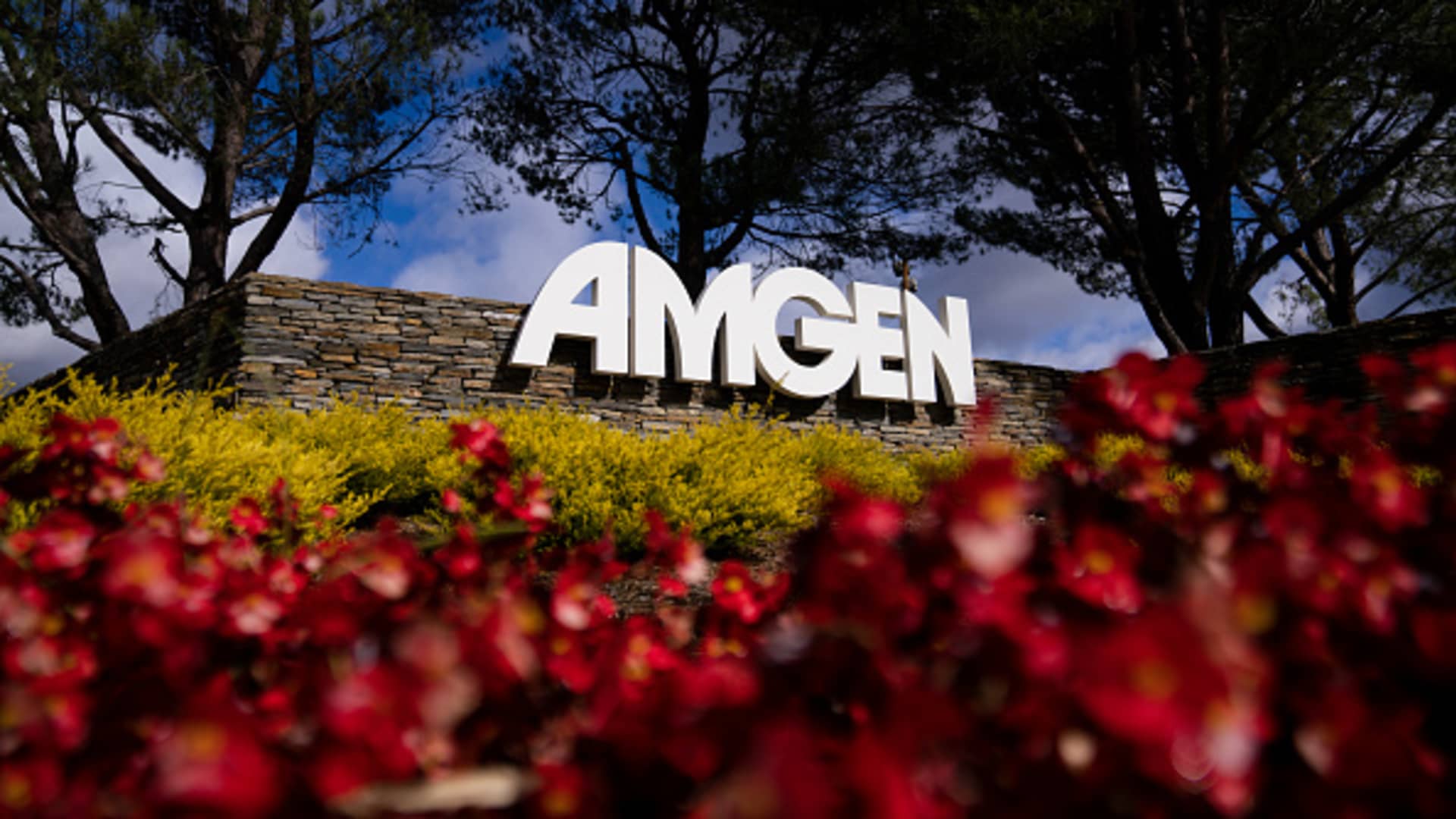In a shift towards direct-to-consumer sales, Amgen has announced its entry into the market with a new initiative aimed at lowering costs for patients. The company stated on Monday that it will offer its cholesterol-lowering medication, Repatha, at a cash price that is nearly 60% below its current list price, making it more accessible to consumers. This move aligns with the broader trend among pharmaceutical companies to simplify medicine access for Americans, partly driven by political pressure from the Trump administration to reduce drug prices.
Earlier this year, President Donald Trump reached out to 17 drug manufacturers, urging them to implement strategies that would lower costs for patients. This included introducing direct-to-consumer sales models. Companies were given a deadline of September 29 to respond to his requests. Trump’s initiatives seek to revive a controversial pricing plan known as the “most favored nation” policy, which aims to set U.S. drug prices in relation to lower prices available abroad.
As part of this strategy, Trump announced the upcoming launch of a website, TrumpRx.gov, where branded medications could be purchased online at discounted rates. For instance, Pfizer has stated that it plans to provide a significant portion of its primary care and specialty drugs at prices reduced by an average of 50%, with some discounts reaching up to 85%.
The direct-to-consumer programs being adopted by these companies typically offer substantial cash discounts and often include perks such as free shipping for patients who choose to buy directly instead of going through traditional pharmacies.
Here’s a look at some notable initiatives from various pharmaceutical companies:
– Amgen: Launching a program called AmgenNow, the company will offer Repatha at a cash price of $239 per month. This price is touted to be the lowest available in any developed country and is accessible to all patients, regardless of their insurance status.
– Eli Lilly: In January 2024, Eli Lilly began operating LillyDirect, an online pharmacy designed to facilitate access to its weight-loss drug Zepbound. This platform allows eligible patients to obtain prescriptions and enjoy home delivery services. Recently, LillyDirect has started offering Zepbound in single-dose units at half or less than the standard $1,000 monthly cost.
– Novo Nordisk: The company announced in March that it would provide its weight-loss medication Wegovy at a reduced cash price of about $499 per month through its online pharmacy, NovoCare, catering to patients without insurance. In August, Novo Nordisk extended this offer to their diabetes drug Ozempic, available at the same cash price.
– Pfizer: In August 2024, Pfizer introduced PfizerForAll, a direct-to-consumer service that assists patients in scheduling telehealth appointments and accessing savings on medications for conditions such as migraines, COVID-19, and the flu.
– AstraZeneca: The company revealed in September its AstraZeneca Direct program, set to provide cash-paying patients discounts of up to 70% on its diabetes drug Farxiga and two asthma treatments starting October 1.
– Novartis: Scheduled to launch on November 1, Novartis will offer its immunology drug Cosentyx at a 55% discount for cash-paying patients. This pilot program will determine the viability of a broader direct-to-consumer strategy for more of its products.
– Bristol Myers Squibb: In July, along with Pfizer, Bristol Myers Squibb started the Eliquis 360 Support online program, offering the blood thinner Eliquis at a 43% discount. The company announced further expansion of its initiatives, allowing patients to purchase the plaque psoriasis treatment Sotyktu at an over 80% discount starting in January.
Additionally, the pharmaceutical industry’s lobbying group, PhRMA, announced plans for a new online platform, AmericasMedicines.com, slated to launch in January, designed to assist patients in purchasing prescription medications directly from manufacturers.
As these developments unfold, the expectation is that the pharmaceutical sector will continue to negotiate new drug pricing arrangements amid the growing call for accessibility and affordability in the healthcare system.
In an unrelated but pertinent discussion, Dr. Mehmet Oz, the Administrator of the Centers for Medicare & Medicaid Services (CMS), shared his ambitious goals for improving the health system during a recent conversation at the Aspen Institute. He expressed optimism about Congress reaching a resolution to maintain ACA tax credits as the enrollment period approaches on October 15. Dr. Oz also spoke about CMS’s efforts to aid states in implementing new work requirement verification rules through technological partnerships.
Oz emphasized his commitment to making medications more affordable for Americans, pledging that by the end of Trump’s term, 95% of drugs would be offered at a price point consumers could feel proud of. He noted the significance of Trump’s direct sales initiative and the ongoing Medicare drug price negotiations as critical components in this effort.
While discussing the potential for Medicare coverage of expensive GLP-1 weight loss medications, he acknowledged the promising benefits these drugs may provide, albeit he refrained from committing on insurance coverage at this time.
In conclusion, the shifting landscape of pharmaceutical sales, coupled with an emphasis on reducing drug costs, suggests patients may soon find more accessible healthcare options as companies embrace these direct-to-consumer models.






